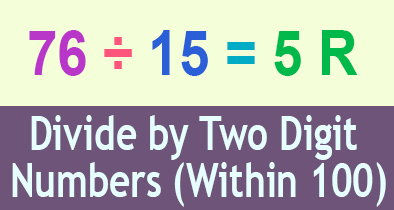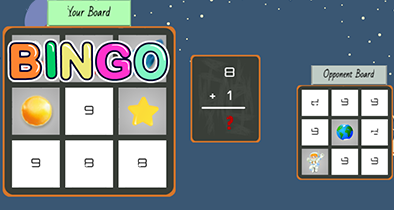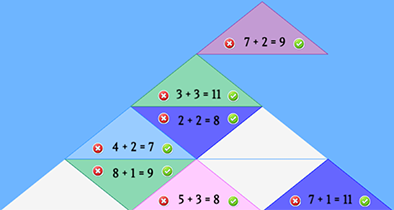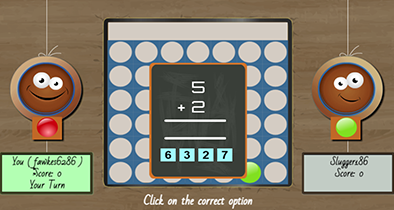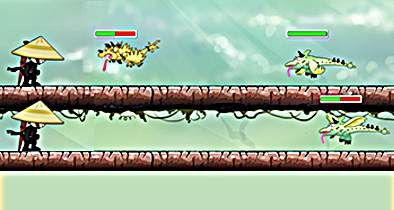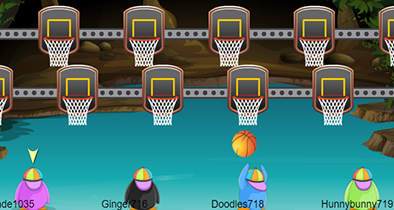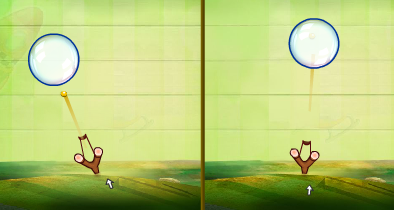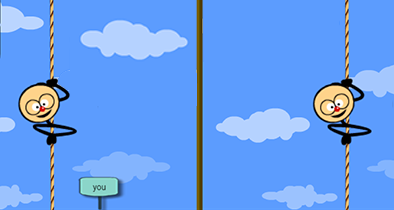Login as parent/teacher to assign this.
Division Games
Formulate division expressions or sentences to represent the partitioning of a quantity into equal parts. Utilize symbols and mathematical notation to articulate the division process, fostering clarity in problem-solving.
Explore the fundamental properties associated with division, such as the identity property and the relationship between multiplication and division. Understanding these properties enhances proficiency in manipulating and solving division problems.
Develop the skill to divide larger numbers by one-digit divisors within the range of 100. Mastering this technique is essential for solving real-world problems and building a strong foundation for more advanced division concepts.
Extend division skills by dividing larger numbers by two-digit divisors within the range of 100. This advanced division concept builds on foundational skills, allowing for the solution of more complex mathematical problems..
Investigate and solve inequalities involving division, where the relative sizes of quantities are expressed. Understand how division influences the relationships between numbers, contributing to a deeper comprehension of mathematical inequalities.
Division is a fundamental arithmetic operation that determines how many times one number can be evenly distributed into another. It involves splitting a quantity into equal parts or groups to find the quotient. It is the inverse operation of multiplication and is commonly used to solve problems involving distribution or partitioning of resources or quantities. In mathematics, division is denoted by the symbol / or ÷, where the number being divided is called the dividend, and the number by which it is divided is called the divisor.
Division is a mathematical operation that involves splitting a quantity or set of objects into equal parts to determine how many times one number fits into another. It is the process of partitioning a whole into smaller, equal groups, resulting in the quotient, which represents the number of times the divisor can be subtracted from the dividend. Division is essential for various real-world applications, such as sharing items equally among people, calculating rates or ratios, and solving mathematical problems involving proportions.
A fun-filled game for Grade 3 kids to sharpen their division skills on an exciting platform
A perfectly designed game for Garde 3 kids to help them practice finding missing facts in order to complete the given multiplication & division facts.
Face off against a classmate or an online opponent taking turns to answer problems. Choose your operation and answer correctly to get a chance to mark your token. Work to make a vertical, horizontal, or diagonal row. Be careful! A missed answer prevents you from marking your board!
Team up with friends or work with other students online in this incredibly fun tetris-like game! Practice either addition, subtraction, multiplication, or division, blasting the triangles with incorrect information. But be careful - if you blast a correct equation, you'll lose a chance! Click to flip and arrange all of your triangles to form a pyramid!
Face off against an opponent in this classic logic game. Invite friends to play or be paired by the system. Answer addition questions correctly to earn the chance to drop your marker into the board. To win, connect four circles with your color marker, either horizontally, vertically, or diagonally!
Rev up your engines for this intense multiplayer game! Practice your typing, math, and language skills through this race to the end. Correct answers make your monster truck go faster - the faster you answer, the faster you'll go! Boost power with consecutive right answers, or opt to slow other players down. Hit the gas!
Hi-ya! Get your ninja ready to battle against monsters. Race against another player to answer questions and destroy the monsters. The quicker you answer, the more power you have. Consecutive correct answers power up your ninja skills - attack with fury or retreat to save yourself.
Dribble, dribble, shoot! Get your court skills primed for a competitive game of hoops with friends! Choose your subject area from math, English, or typing skills, and jump in the game. Answer questions quickly to earn your spot on the foul shot line. Shoot to win!
Face off against your opponent armed with a slingshot. Answer questions in math, language, or use your typing skills to get ahead. Shoot stones at the correct answer bubble to pop it and score! Be careful...those bubbles will come faster the further you get into the game!
Who will make it to the top first? Climb faster than your friends by answering questions either in math, language, or using your typing skills. Correct answers propel your stickman towards the top of the rope. Answer consecutively to earn sliding props to make your opponent slip back down their rope!
Get ready for an exhilarating multiplayer game! Hone your typing, math, and language skills in a high-speed race to the finish. Answer correctly to accelerate your monster truck – the quicker you respond, the faster you will go! Gain speed with consecutive correct answers or choose to slow down your opponents. Floor it!

Our Educational Resources
Math Games
- Addition
- Area and Perimeter
- Decimals
- Division
- Fractions
- Shapes
- Geometry
- Multiplication
- Number
- Roman Numerals
- Statistics
- Subtraction
- Time
- Units of Measurement








